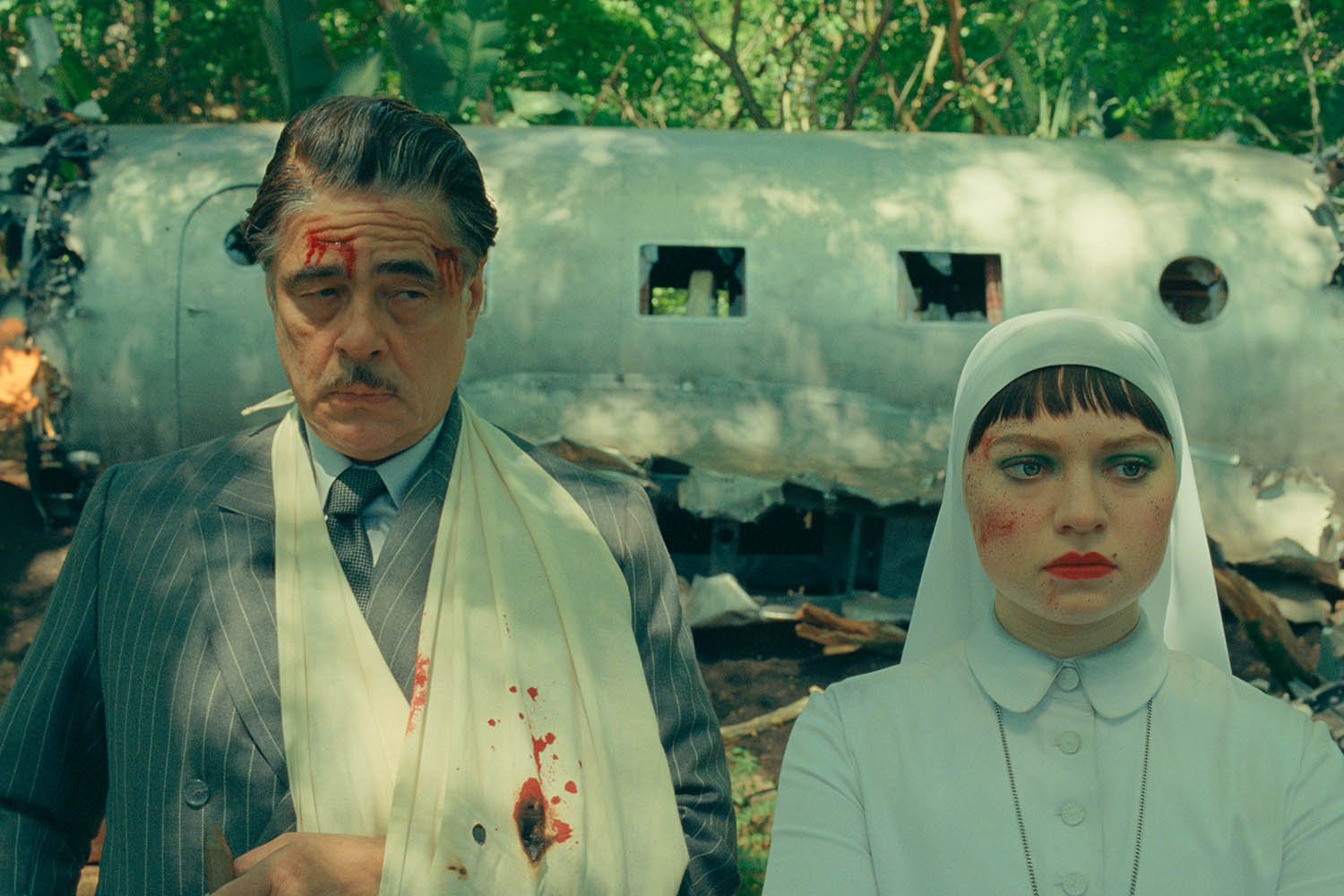The world created and rigorously curated by Wes Anderson’s cinema is so consistent – in its puckish tone, its deadpan drollery, its meticulously heightened production design – that he’s vulnerable to the accusation that he has made the same film over and over. That’s hardly fair: rather a lot of ground separates the spritzy family-friendly hijinks of Fantastic Mr Fox, say, from the more darkly tangled espionage of his latest film, The Phoenician Scheme, now out on VOD. Still, they’re variations on a theme: Anderson may be more devoted than any other modern film-maker to the template of the caper movie, itself a derivative of the heist movie, distinguished by cheerfully lowered dramatic stakes, amped-up comedy and a we’re-all-in-this-together spirit.
Centred not on a simple crime job but the tortured wheeling, dealing and moral redemption of Benicio Del Toro’s shady business tycoon, the film isn’t a caper in the strict sense but feels like one anyway, breezily shuffling from one scrape to another. making light work of what in real life would be rather more consequential activity. It’s tighter and more involving than Asteroid City or The French Dispatch, though I’m not sure how long it will linger in the memory.
The best caper films have a sticking quality, a memorably precise construction belied by their effortless air: even when the plot is beside the point, you can recite it the way you would a favourite anecdote, along with its best accompanying jokes. Take The Lavender Hill Mob(1951), the Ealing Studios Ealing Studios comedy that might be the platonic ideal of the caper movie, framed as a tall story told to a mystery confidant, and revolving around a gold-smuggling scheme that sets itself up – then collapses – as neatly and satisfyingly as a snaking chain of dominoes. Nearly 40 years later, the film’s director, Charles Crichton, pulled off a similar trick with more 1980s gloss — updating the cosy Ealing house style with more 1980s gloss and sex — in A Fish Called Wanda, another loopily complicated farce told with shrugging ease.
Laying down all this nimble narrative architecture can be a thankless task. The 1966 delight How to Steal a Million is built around a beautifully formed museum heist, rich with deceptions and reversals, that is nevertheless outshone by the blazing star chemistry between Audrey Hepburn and Peter O’Toole, at their zenith of screen beauty. So too with Hepburn and Cary Grant in Charade, an ingenious little genre workout designed to showcase the sheer magnetism of its actors, who get to look as slick and smart as can be – in the chicest capers, brains and beauty serve each other equally.
Both those Hepburn films arrived in the 60s, Hollywood’s peak decade for caper movies, stoked by the European success of Ealing films and the delicious (though sadly unstreamable, in the UK) Italian hit Big Deal on Madonna Street. American director Jules Dassin more or less perfected the sterner, leaner heist film in Rififi; in 1964’s Topkapi (SkyStore), a jewel-thief lark awash in Technicolor spectacle, he retooled a similar job to the brighter, sillier demands of the caper. The Shirley MacLaine-Michael Caine vehicle Gambit was tart and buoyant in a way 2012’s lumpy Coens-scripted remake couldn’t hope to match, though the Rat Pack caper Ocean’s Eleven gained significant swagger when Steven Soderbergh remade it in 2001. (The sleek Steve McQueen heist movie The Thomas Crown Affair, meanwhile, wasn’t a caper at all until John McTiernan and star Pierce Brosnan gave it a twinklier makeover in 1999.).
Since that midcentury peak, it’s been hard for the caper movie to shake off a certain retro quality, perhaps in response to the violent hardening of other crime-movie subgenres. In the 1970s, The Sting reached back to the jazz age for that kind of gentle comfort; now, directors such as Anderson and Steven Soderbergh – who returned to the caper genre to disarmingly carefree effect in Logan Lucky(2017) – channel the stylised zip and vim of the 60s in their throwbacks. But for those of us born well after that era, no caper movie arouses quite as much nostalgia as the plainly and accurately titled The Great Muppet Caper. Jewels, jokes, and a sexy Miss Piggy (who brings the megawatt sex appeal): here are all the genre’s assets in one fuzzy package.
All titles in bold are widely available to stream unless otherwise specified.
Photograph by Focus Features
Newsletters
Choose the newsletters you want to receive
View more
For information about how The Observer protects your data, read our Privacy Policy

